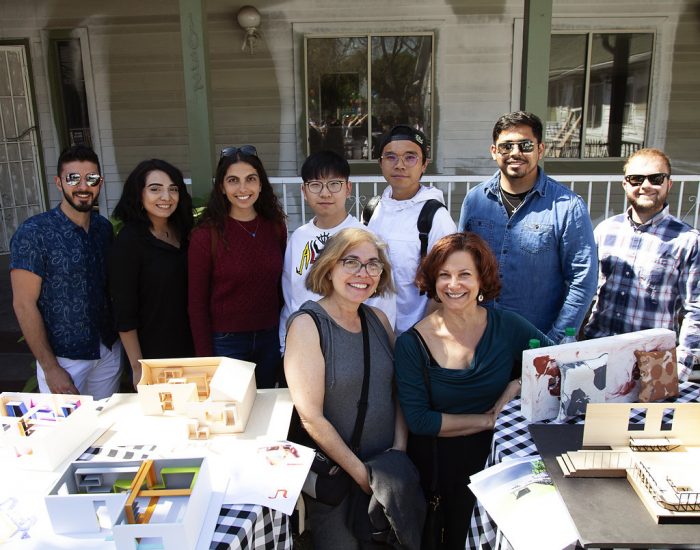Woodbury Collaborates with the National Health Foundation to Improve Housing for Homeless Patients
You might think of ACE, Woodbury’s Agency for Civic Engagement, as a laboratory where students – in concert with nonprofits and government agencies — apply lessons from the classroom to improve communities and change lives. Including their own. Through design, business and media, ACE does just that in often profound ways.
Enter the National Health Foundation a self-described team of “upstreamists” who believe that health can be improved by addressing the root causes of health disparities. Pathway Recuperative Care is NHF’s response to the critical need for a continuum of care for individuals experiencing homelessness who have been released from the hospital after an injury or illness. Through Pathway Recuperative Care, NHF provides a discharge option to hospitals and a safe place for individuals without homes to heal once they no longer need hospitalization, saving hospitals and taxpayers money while linking clients to housing resources and other supportive services.

NHF and ACE collaborated to create two architectural installations for NHF’s new recuperative care facility in Los Angeles. The installations, designed and built by Woodbury’s School of Architecture students, provide amenities for residents at the facility. Where feasible, the designs drew input from NHF staff and resident participants:
- Project One: Dining Enhancements. Located in the outdoor dining courtyard, the architectural installation sought to beautify the space and make it more commodious for outdoor dining and lounging. Features include shade devices, ground and wall surfaces, and community furniture.
- Project Two: Wardrobe Remodel. The remodel transformed a storage building into an informal “clothing closet” for residents. This project used surface and material treatments on the exterior (such as graphics and paint), awnings, and modest changes to doors and windows. Interior features include displays for clothing and accessories, display walls, and furnishings.
“As this NHF project so vividly demonstrates, ACE gives students the opportunity to explore human-centered, participatory partnerships that address cultural, economic and social issues,” said Jeanine Centuori, Director of the Agency for Civic Engagement at Woodbury University. “ACE challenges students to develop theoretical and practical skills to respond to a range of public needs. The recuperative care facility installations exemplify the kind of inspiring, enduring solutions that ACE was chartered to deliver.”
The project kicked off in mid-January and is scheduled to wrap up in early May. The first half of the semester consisted of various design review checkpoints; the second half involved construction at Woodbury and at the recuperative care facility.
“Our goal is to humanize care for those experiencing homelessness and create a center we ourselves would live in. From offering family-style dining to a community garden, these seemingly simple ideas inspired by NHF’s core values are what make a place comfortable, inviting and homelike,” said Kelly Bruno, President and CEO of NHF. “We are thrilled to have Woodbury’s architecture students put their skills to work for us on practical, creative and buildable solutions that help change the way people heal and ultimately live their lives.”